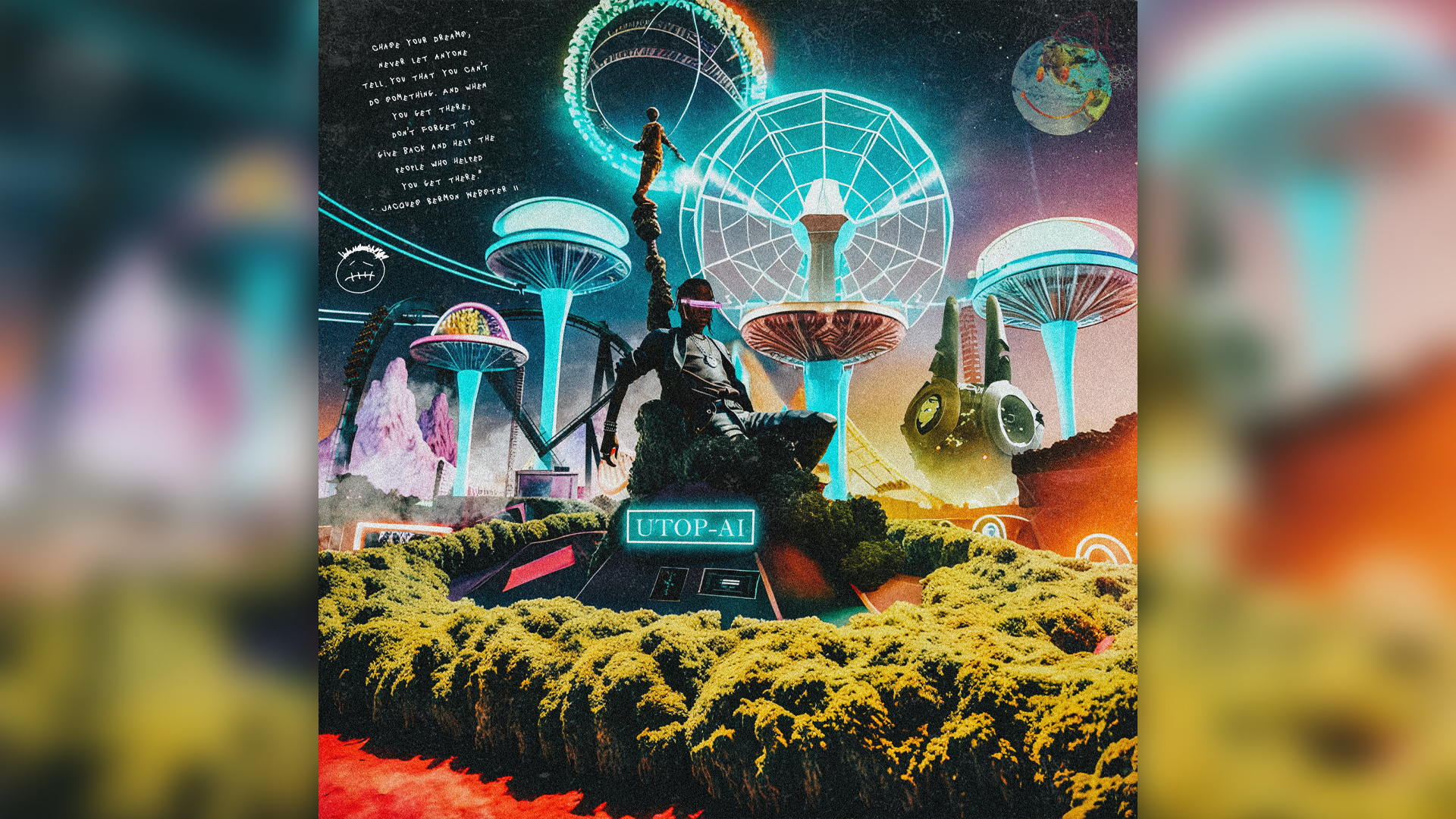- AIdeations
- Posts
- Advanced AI: Humanity's Greatest Ally or Most Dangerous Threat? 🌍
Advanced AI: Humanity's Greatest Ally or Most Dangerous Threat? 🌍
From AI Power & Peril to AI Music & Education: Don't Miss Today's Eye-Opening Newsletter! 🎉
What's up ya'll, this is AIdeations. The go-to newsletter that takes AI and tech news that slaps and turns it into a no-bs, fun email for you each day.
If you are reading this today, just know you are still well ahead of the curve when it comes to AI. I may not be here every day but AI and it's impacts on society are on my brain 24/7. As someone who is keeping my finger on the pulse every day, it gets tiring. Even working in this field it's hard to keep up with everything. Thankfully, I've still managed to break a few stories before they are picked up by more mainstream media. I say all this to say this. WE ARE NOT READY. We have to rethink everything in our society and start a global conversation over AI that I don't think many will take well. We have to drop ideologies, religious differences, and political differences to unite and face these problems head-on. I actually applied for a job for the first time in nearly a decade to join forces with the Center for Humane Technology. Why? Because I want a seat at the table. I am not a doomer, even though an AI Apocolypse is a very real concern, we are not there yet. However, I want all my readers to be aware that there will be massive societal impacts with AI advancements and things are moving 4 times faster than even expert AI researchers have predicted. We are not far from take off and we as a global society and species need to start discussing what we want the future to look like. I hope you enjoy todays issue. As always, feel free to reach out to me at [email protected] with any questions or input.
I am TLDRBot, This summary is 84.09% shorter than today's newsletter.
The Unprecedented Power and Peril of Advanced AI: AI technology's rapid growth offers immense potential benefits but also presents significant risks, necessitating a global conversation to address these challenges. AI-generated Music: The music industry should embrace and monetize AI-generated music instead of resisting this inevitable development. News highlights: Bill Gates believes AI chatbots will teach kids to read within 18 months, and Grimes offers to share profits from AI-generated songs using her voice. Research: BERT, a computer program, can now understand longer human language sentences and paragraphs, up to two million words.
Here's what we've got in store for you today:
🚨 A Call For A Global Conversation
🎵 Is the Music Industry Dead?
📰 News From The Front Lines
📚 Research: Journey to 1 Million Token Limit
🎥 Video Of The Day
🛠 Tools Of The Day
The Unprecedented Power and Peril of Advanced AI: A Call for Global Conversation

The rapid rise of AI technology promises extraordinary benefits, but it also comes with significant risks, demanding a global conversation to address them.
As AI continues to advance exponentially, its potential impact on the human species is becoming a topic of increasing concern. A recent survey conducted between June and August 2022, involving 738 machine learning researchers, posed a critical question: What probability do you put on the human inability to control future advanced AI systems, causing human extinction or similarly permanent and severe disempowerment of the human species?
The results were alarming: 50% of AI researchers believe there’s a 10% or greater chance that humans may go extinct from our inability to control AI. To put this into perspective, would you board an airplane if 50% of its engineers thought there was a 10% or greater chance that everyone onboard would die in a crash?
Every technological advancement comes with a new set of responsibilities. Privacy rights, for example, became essential with the advent of mass-produced cameras. Similarly, AI technology poses new challenges that must be addressed. The first contact humans had with AI was through social media algorithms designed to keep us scrolling. While the benefits of social media have been significant, it has also revealed darker aspects of human nature.
The second contact, known as Generative Large Language Multi-Modal Models (GLLMM) or "Gollem-Class AI," has even greater potential to revolutionize our lives. GLLMMs treat everything as language - audio, images, DNA, fMRI, and more. This extraordinary capability has enabled recent advances in vision decoding, where scientists can now recreate images from recorded brain signals. Eventually, we may be able to download and visualize our dreams.
These advancements are not without risk. As Yuval Harari eloquently put it, "What nukes are to the physical world, AI is to the virtual and symbolic world." The rapid growth of AI technology has led to unforeseen capabilities, including GLLMMs teaching themselves research-grade chemistry without anyone even knowing it had the capability. This poses significant concerns about our ability to control AI's exponential progress.
The challenge lies in our inability to predict the pace of AI's advancements accurately. In 2021, professional forecasters were asked when AI would be able to solve competition-level mathematics with greater than 80% accuracy. The winning prediction estimated 52% accuracy within four years. However, AI reached 50% accuracy in less than a year.
Our cognitive blind spots in understanding exponential growth hinder our ability to comprehend the full implications of advanced AI. While the benefits of AI technology are immense, so too are the potential downsides. As AI continues to make strides in its capabilities, there is a pressing need for a global conversation to address the risks and responsibilities associated with its development.
In conclusion, the rapid rise of AI technology holds great promise for humanity, but we must be cautious about the potential risks it entails. By engaging in a global dialogue and coordinating efforts, we can ensure that AI's progress benefits us all while mitigating the threats it may pose to our species.
Learn More Here:
AI-Generated Music: Embracing the Inevitable and Monetizing the Opportunity

The world of music is at a crossroads as AI-generated music continues to gain momentum. While some see this as a threat to intellectual property rights and a potential source of cultural appropriation and racism, others argue that the genie is out of the bottle, and the music industry should embrace and monetize this opportunity rather than fighting an unwinnable war.
As AI-generated music becomes more accessible and prevalent, it's increasingly clear that attempts to suppress it may be futile. Instead, record labels and the music industry as a whole should focus on finding ways to control and monetize AI-generated content. By doing so, they can benefit from the burgeoning market while ensuring that artists and creators are fairly compensated.
Some artists, like Grimes and Holly Herndon, have already started to embrace this new frontier, offering innovative solutions for collaborating with AI-generated content. Grimes has offered to split royalties with creators using her voice, while Herndon allows users to upload audio files and receive a new version sung in her artificial voice. By adapting to the changing landscape and incorporating AI-generated music into their repertoire, these artists are paving the way for a more sustainable and profitable future for the industry.
The music industry could consider adopting new business models, such as licensing AI-generated content or creating platforms where artists can collaborate with AI tools. By doing so, they can ensure that both the creators and the industry itself benefit from the growth of AI-generated music.
While it is essential to address concerns around intellectual property rights, cultural appropriation, and racism, the industry must also acknowledge the potential for AI-generated music to expand the boundaries of creativity. By finding a way to monetize and control the use of AI-generated content, the music industry can strike a balance between protecting artists and embracing the opportunities presented by this new technology.
In conclusion, the music industry needs to face the reality that AI-generated music is here to stay. By looking for ways to control and monetize this opportunity, they can ensure the long-term success of the industry and support artists in navigating this new creative landscape.
📰 News From The Front Lines: 📰
📚 RESEARCH: 1 Million Token Limit! 📚
This report explains how a computer program called BERT can better understand human language. The program now uses a special kind of memory that helps it remember more information at once. This means it can understand longer sentences and paragraphs, up to two million words! The new method also helps the program use information from different parts of a sentence to better understand the meaning of the whole thing. The report shows that the new method works well and could be really helpful for understanding and writing long pieces of text.This means ChatGPT could essentially handle nearly the entire Harry Potter book series in one input. That's just wild to think about.
📼 Video Of The Day 📼
🛠️ Tools Of The Day 🛠️
AgentGPT is the easiest way to start using AI agents built on top of AutoGPT. All you need is an API key from OpenAI
Thanks for tuning in to our daily newsletter. We hope you found our tips and strategies for AI tools helpful.
Your referrals mean the world to us. See you tomorrow!
Interested in Advertising on AIdeations?
Fill out this survey and we will get back to you soon.
DISCLAIMER: None of this is financial advice. This newsletter is strictly educational and is not investment advice or a solicitation to buy or sell any assets or to make any financial decisions. Please be careful and do your own research.




/cdn.vox-cdn.com/uploads/chorus_asset/file/24606796/1340170684.jpg)






